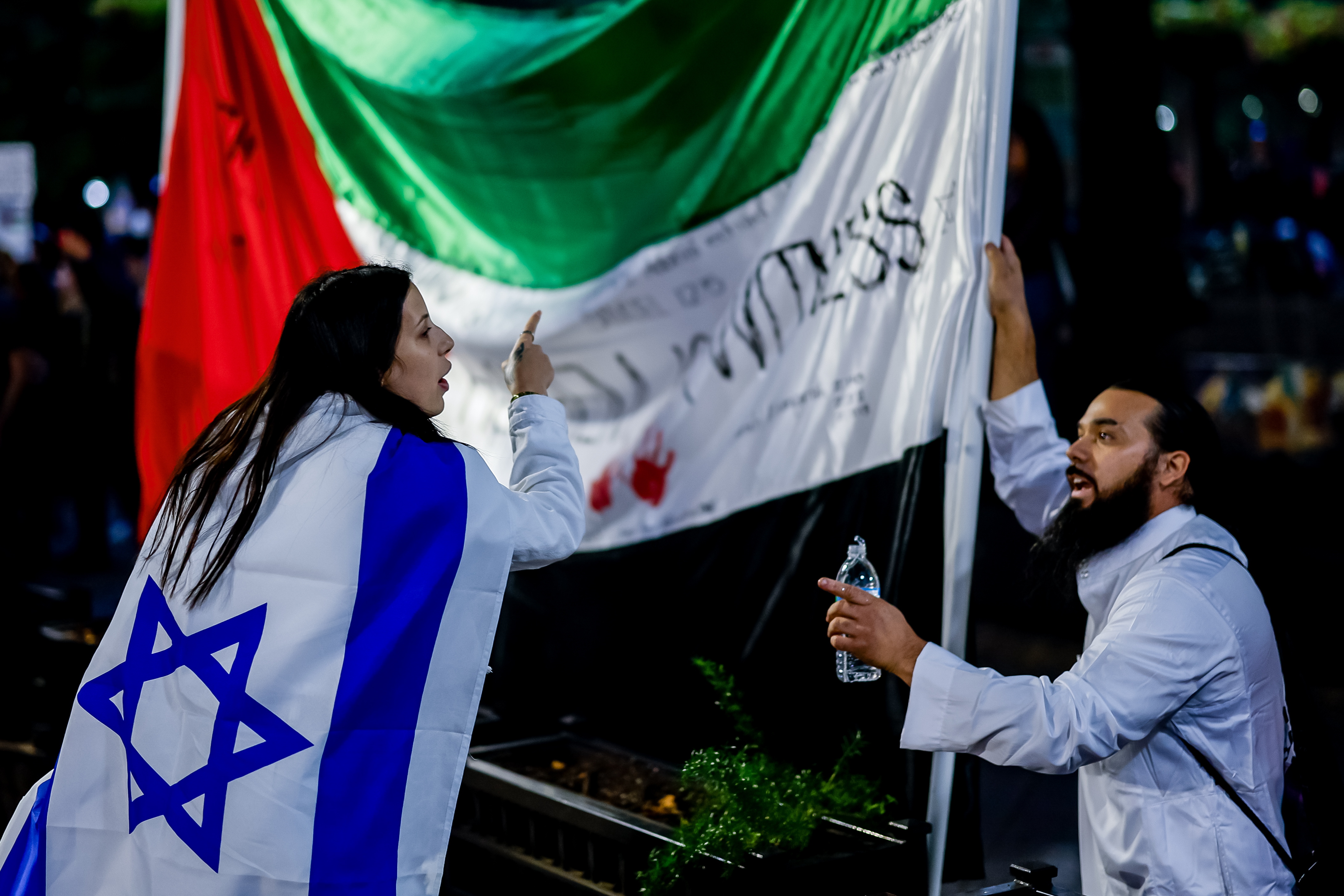Anger is Easy, Dialogue is Hard

Let’s be honest for a second—anger feels good. It’s a whole lot easier to clench your fists, scream into the void, and watch the world burn.
Especially when that world is Gaza, or the West Bank, or Lebanon, or northern Israel. Every day, more children buried, more neighborhoods leveled, more hostages lost, and more lives shattered. So yes, I get it—being angry is natural. It’s instinctual. Who wouldn’t be?
But let me say something controversial: anger alone isn’t going to solve this mess. I’m a Palestinian, and I have every reason to be furious. I’ve lived my whole life in the shadow of this conflict. Yet I’m here to tell you that while anger feels justified—and believe me, it is—it’s also the easy part. It doesn’t take any effort to scream as you see more than 40,000 Palestinians, mostly civilians, lose their lives. Or when you see whole city blocks reduced to rubble, leaving a whole population on the brink of starvation. And a lot of screaming has been done recently.
Dialogue, on the other hand, is hard. It’s so much harder than anger. And that’s exactly why it’s the only way out of this endless cycle of despair.
Why Anger Feels So Damn Good
Anger gives us a sense of purpose, a clear-cut villain to focus our pain. When many of us feel helpless, what else are we expected to do, except make our anger heard? The problem though, is that our anger, while often justified, won’t rebuild Gaza or bring the innocent dead back to life, and it won't bring the hostages home or protect against future violence.
The Mirage of Victory
Hamas launched a surprise attack on Israel on October 7, 2023. Israel decided to fight fire with fire and decided to go out full throttle, because Natanyahu and the IDF wanted to eliminate this threat once and for all.
Let's pretend that somehow, miraculously, they win. What then? Does everyone wake up the next day, brush the dust off their shoulders, and find peace? Do they rebuild a future for their children? Or do they all inherit a land so soaked in blood and trauma that no one can ever find peace again?
Victory in this conflict, as much as we’d like to believe it exists, is a mirage. There are no winners here. The more we destroy, the less we have to build on. And even if one side does come out on top, at what cost? More death, more destruction, more trauma that’ll haunt communities for generations. Israeli and Palestinian children deserve better than this endless war.
There are no winners here. The more we destroy, the less we have to build on.
Dialogue is the Dirty Word No One Wants to Hear
Now, don’t get me wrong. I’m not suggesting we should all hold hands and sing Kumbaya around a campfire. I’m not that naive. Dialogue is not about surrendering our rights or compromising our dignity. It’s about finding an alternative way forward.
Dialogue is not about surrendering our rights or compromising our dignity. It’s about finding an alternative way forward.
But here’s the thing: dialogue sucks. It’s uncomfortable. It means sitting down with people we see as "the other" and finding some common ground. It means acknowledging that, despite the atrocities, we still have to coexist. It means swallowing our pride, even when every fiber of our being is screaming to retaliate. It means being willing to have conversations we don’t want to have with people we don't entirely trust to have the best intentions.
Dialogue isn’t about forgetting the past. It’s about refusing to be chained to it. It’s about recognizing that this cycle of violence will never end unless we make the choice—the hard choice—to talk.
The Reality We Can’t Escape
I am not here to give you a happy ending. I don’t have all the answers. But I do know this: if we don’t start finding ways to communicate, we’re just going to keep drifting further apart. Israel’s not going anywhere, and neither are the Palestinians. These people are stuck with each other, whether we like it or not.
So yes, anger is easy. I get that. But dialogue? That’s where the real challenge lies. It’s time we face it.
The truth is, no one wants to admit that sitting down and talking might actually be hard. That it takes more courage to listen to the other side than to yell at them. That maybe—just maybe—the path to peace (whatever that means at this point) doesn’t lie in violence but in the hard, painful, messy work of dialogue.
It takes more courage to listen to the other side than to yell at them
But who said this was going to be easy?
Let’s face it: anger is satisfying, but it’s a dead-end. Dialogue? It’s the hardest thing we’ll ever have to do. But it’s also the only thing that might save us.
Related posts

Civil Dialogue During Difficult Times
On December 19, 2023, during a time of mounting tension, violence, and polarization around the war in Gaza, peace activist…
